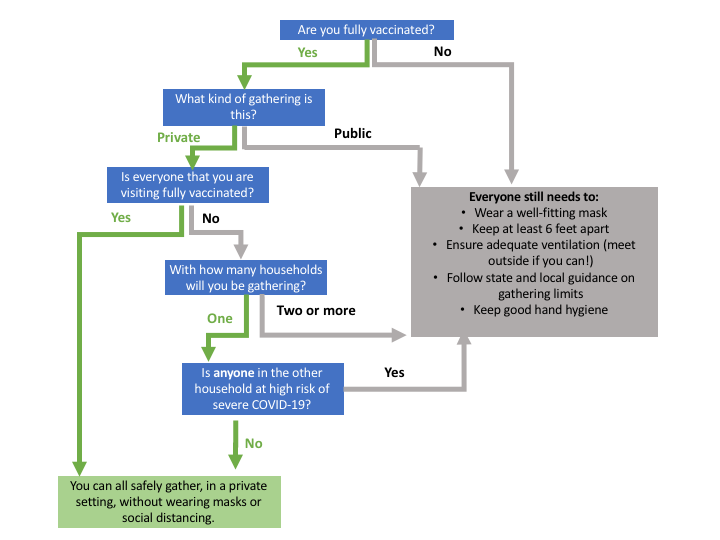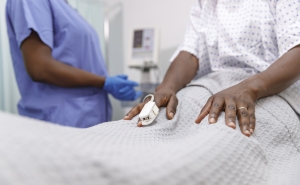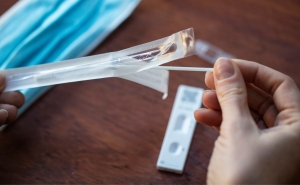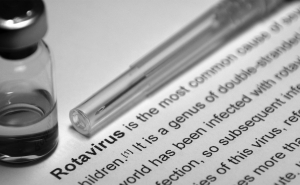Mobile Menu Overlay
The White House 1600 Pennsylvania Ave NW Washington, DC 20500

Fact Sheet: Biden Administration Releases Additional Detail for Implementing a Safer, More Stringent International Air Travel System
As we continue to work to protect people from COVID-19, today, the Biden Administration is releasing additional detail around implementation of the new international air travel policy requiring foreign national travelers to the United States to be fully vaccinated. This updated policy puts in place an international travel system that is stringent, consistent across the globe, and guided by public health. Starting on November 8, non-citizen, non-immigrant air travelers to the United States will be required to be fully vaccinated and to provide proof of COVID-19 vaccination status prior to boarding an airplane to fly to the U.S., with only limited exceptions. The updated travel guidelines also include new protocols around testing. To further strengthen protections, unvaccinated travelers – whether U.S. Citizens, lawful permanent residents (LPRs), or the small number of excepted unvaccinated foreign nationals – will now need to test within one day of departure. Today, the Administration is releasing the following documents to implement these requirements: 1) a Presidential Proclamation to Advance the Safe Resumption of Global Travel During the COVID-19 Pandemic; 2) three Centers for Disease Control and Prevention (CDC) Orders on vaccination, testing, and contact tracing; and 3) technical instructions to provide implementation details to the airlines and their passengers. With science and public health as our guide, the United States has developed a new international air travel system that both enhances the safety of Americans here at home and enhances the safety of international air travel. The additional detail released today provides airlines and international air travelers with time to prepare for this new policy ahead of the November 8 implementation date. As previously announced, fully vaccinated foreign nationals will also be able to travel across the Northern and Southwest land borders for non-essential reasons, such as tourism, starting on November 8. Additional detail on amendments to restrictions with respect to land borders will be available in the coming days. Travelers can find full details about today’s air travel announcement on the CDC and Department of State websites. A summary is below: Fully Vaccinated Status:
- Starting on November 8, non-citizen, non-immigrant air travelers to the United States will be required to be fully vaccinated and to provide proof of vaccination status prior to boarding an airplane to fly to the U.S.
Proof of Vaccination:
- For foreign nationals, proof of vaccination will be required – with very limited exceptions – to board the plane.
- Match the name and date of birth to confirm the passenger is the same person reflected on the proof of vaccination;
- Determine that the record was issued by an official source (e.g., public health agency, government agency) in the country where the vaccine was given;
- Review the essential information for determining if the passenger meets CDC’s definition for fully vaccinated such as vaccine product, number of vaccine doses received, date(s) of administration, site (e.g., vaccination clinic, health care facility) of vaccination.
- The Biden Administration will work closely with the airlines to ensure that these new requirements are implemented successfully.
Accepted Vaccines:
- CDC has determined that for purposes of travel to the United States, vaccines accepted will include FDA approved or authorized and World Health Organization (WHO) emergency use listed (EUL) vaccines.
- Individuals can be considered fully vaccinated ≥2 weeks after receipt of the last dose if they have received any single dose of an FDA approved/authorized or WHO EUL approved single-dose series (i.e., Janssen), or any combination of two doses of an FDA approved/authorized or WHO emergency use listed COVID-19 two-dose series (i.e. mixing and matching).
- More details are available in the CDC Annex here .
Enhanced Testing:
- Previously, all travelers were required to produce a negative viral test result within three days of travel to the United States.
- Both nucleic acid amplification tests (NAATs), such as a PCR test, and antigen tests qualify.
- As announced in September, the new system tightens those requirements, so that unvaccinated U.S. Citizens and LPRs will need to provide a negative test taken within one day of traveling.
- That means that all fully vaccinated U.S. Citizens and LPRs traveling to the United States should be prepared to present documentation of their vaccination status alongside their negative test result.
- For those Americans who can show they are fully vaccinated, the same requirement currently in place will apply – they have to produce a negative test result within three days of travel.
- For anyone traveling to the United States who cannot demonstrate proof of full vaccination, they will have to produce documentation of a negative test within one day of departure.
Requirements for Children:
- Children under 18 are excepted from the vaccination requirement for foreign national travelers, given both the ineligibility of some younger children for vaccination, as well as the global variability in access to vaccination for older children who are eligible to be vaccinated.
- Children between the ages of 2 and 17 are required to take a pre-departure test.
- If traveling with a fully vaccinated adult, an unvaccinated child can test three days prior to departure (consistent with the timeline for fully vaccinated adults). If an unvaccinated child is traveling alone or with unvaccinated adults, they will have to test within one day of departure.
Limited Exceptions from the Vaccination Requirement:
- There are a very limited set of exceptions from the vaccination requirement for foreign nationals. These include exceptions for children under 18, certain COVID-19 vaccine clinical trial participants, those with medical contraindications to the vaccines, those who need to travel for emergency or humanitarian reasons (with a US government-issued letter affirming the urgent need to travel), those who are traveling on non-tourist visas from countries with low-vaccine availability (as determined by the CDC), and other very narrow categories.
- Those who receive an exception will generally be required to attest they will comply with applicable public health requirements, including, with very limited exceptions, a requirement that they be vaccinated in the U.S. if they intend to stay here for more than 60 days.
Contact Tracing:
- The CDC is also issuing a Contact Tracing Order that requires all airlines flying into the United States to keep on hand – and promptly turn over to the CDC, when needed – contact information that will allow public health officials to follow up with inbound air travelers who are potentially infected or have been exposed to someone who is infected.
- This is a critical public health measure both to prevent the introduction, transmission, and spread of new variants of COVID-19 as well as to add a critical prevention tool to address other public health threats.
Stay Connected
We'll be in touch with the latest information on how President Biden and his administration are working for the American people, as well as ways you can get involved and help our country build back better.
Opt in to send and receive text messages from President Biden.
- Skip to main content
- Keyboard shortcuts for audio player

Coronavirus Updates
Cdc says travel is safe for fully vaccinated people, but opposes nonessential trips.
Rachel Treisman

The Centers for Disease Control and Prevention updated its domestic travel guidance for fully vaccinated people on Friday, lifting certain requirements while continuing to advise mitigation measures like mask-wearing and hand-washing. Angus Mordant/Bloomberg via Getty Images hide caption
The Centers for Disease Control and Prevention updated its domestic travel guidance for fully vaccinated people on Friday, lifting certain requirements while continuing to advise mitigation measures like mask-wearing and hand-washing.
The Centers for Disease Control and Prevention has updated its domestic travel guidance for fully vaccinated people, lifting certain testing and self-quarantine requirements and recommending precautions like wearing a mask and avoiding crowds. But health officials continue to discourage nonessential travel, citing a sustained rise in cases and hospitalizations.
The CDC updated its website on Friday to reflect the latest scientific evidence, writing that "people who are fully vaccinated with an FDA-authorized vaccine can travel safely within the United States."
The announcement comes less than a month after the CDC first released updated guidance about gatherings for fully vaccinated people, which it described as a "first step" toward returning to everyday activities.
Air Travel Is Opening Up Again, But That Doesn't Mean The Pandemic Is Over
The CDC considers someone fully vaccinated two weeks after they receive the last dose of vaccine. Those individuals will no longer need to get tested before or after travel unless their destination requires it, and do not need to self-quarantine upon return.
The new guidance means, for example, that fully vaccinated grandparents can fly to visit their healthy grandkids without getting a COVID-19 test or self-quarantining as long as they follow other recommended measures while traveling, according to CDC Director Rochelle Walensky.
Those measures include wearing a mask over their nose and mouth, staying 6 feet from others and washing their hands frequently. Masks are required on all planes traveling into, within or out of the U.S., under an executive order issued by President Biden.
But Walensky, speaking at a White House COVID-19 Response Team briefing on Friday, nonetheless discouraged all nonessential travel, citing a continued increase in the seven-day average of cases and hospitalizations.
"While we believe that fully vaccinated people can travel at low risk to themselves, CDC is not recommending travel at this time due to the rising number of cases," Walensky said.

CDC Director Fears 'Impending Doom' If U.S. Opens Too Quickly
She said that while vaccinated people can do more things safely, most Americans are not yet fully vaccinated. Those who are not must have a negative test 1-3 days before they travel under CDC guidance. They must either get tested 3-5 days after they return and self-quarantine for 7 days, or self-quarantine for 10 days with no test.
Walensky said on Monday that there is more travel occurring now than throughout the pandemic, including the winter holidays. She acknowledged that people have been looking to get away over spring break or take advantage of what they perceive as a "relative paucity in cases," and she said the country was seeing an uptick in cases as a result.
"The thing that's different this time is that we actually have it in our power to be done with the scale of the vaccination," she said. "And that will be so much slower if we have another surge to deal with as well."
The U.S. is already seeing an uptick in domestic travel, and many Americans are looking to book trips in the coming months in what experts described to NPR as a sign of "clear pent up demand for travel."
As the country's supply of COVID-19 doses has grown, so has Biden's goal for the number of shots in arms during his first 100 days, doubling the target to 200 million by the end of this month. Many states have already expanded eligibility to all adults or are set to do so in the coming weeks, well ahead of the president's May 1 deadline.
According to NPR's vaccine tracker , 16.9% of the U.S. population is fully vaccinated, and 30% has had at least one dose. Researchers estimate that 70% to 85% of the country would need to have immunity for COVID-19 to stop spreading through communities.
International travel restrictions remain
The CDC is not lifting travel restrictions barring the entry of most non-U.S. citizens from places including China, Brazil, South Africa and parts of Europe. It will continue to require airline passengers entering the U.S. to get a test within three days of their departure and show proof of a negative result before boarding.
The travel industry has been pushing for some of these restrictions to end. A group of 26 organizations sent a letter to White House COVID-19 czar Jeffrey Zients urging the federal government "to partner with us to develop, by May 1, 2021, a risk-based, data-driven roadmap to rescind inbound international travel restrictions."

While Some Spring Breakers Swarm Beaches, Many Stay Home, Dreaming Of Summer Travel
"To be clear, at this time, we do not support removal or easing of core public health protections, such as the universal mask mandate, inbound international testing requirement, physical distancing or other measures that have made travel safer and reduced transmission of the virus," they wrote. "However, the data and science demonstrate that the right public health measures are now in place to effectively mitigate risk and allow for the safe removal of entry restrictions."
Travel and tourism have taken a considerable hit because of the pandemic with industry groups noting that overseas travel to the U.S. declined by 81% in 2020, causing billions of dollars in losses. Without lifting international travel bans, the U.S. Travel Association estimates that some 1.1 million American jobs will not be restored and billions in spending will be lost by the end of the year.
"Fortunately, enough progress has been made on the health front that a rebound for domestic leisure travel looks possible this year, but that alone won't get the job done," Roger Dow, the association's president and CEO, said in a statement . "A full travel recovery will depend on reopening international markets, and we must also contend with the challenge of reviving business travel."

Fauci Expects Surge In Vaccinations To Keep A 4th Coronavirus Wave At Bay
- Centers for Disease Control and Prevention
- COVID-19 vaccine
We’re sorry, this site is currently experiencing technical difficulties. Please try again in a few moments. Exception: request blocked

Based on Zip Code Change
- Shop the Red Cross Store
COVID-19: CDC Says Fully Vaccinated People Can Travel
- Share via Email
- Share on Facebook
- Share on Twitter
- Share on LinkedIn

The Centers for Disease Control and Prevention (CDC) has updated its travel guidance for people who are fully vaccinated. A person is considered fully vaccinated two weeks after receiving the last recommended dose of vaccine.
According to the CDC, fully vaccinated people can travel at low risk to themselves within the United States and do not need COVID-19 testing or self-quarantine after their trip as long as they continue to take COVID-19 precautions while traveling — wearing a mask, avoiding crowds, socially distancing and washing hands frequently.
Non-essential travel is still discouraged for people who are not fully vaccinated. They should still get tested 1-3 days before domestic travel and again 3-5 days after travel. They should stay home and self-quarantine for 7 days after travel or 10 days if they don’t get tested after traveling.
You can find more information here , including guidance for international travelers.
The vast majority of people need to be fully vaccinated before COVID-19 precautions can be lifted broadly. Until then, it is important that everyone continue to take precautions in public places, meaning wear a mask, stay six feet apart, avoid crowds and avoid poorly ventilated spaces.
In alignment with CDC guidelines, the American Red Cross continues to require face masks to be worn by both donors and staff at donation centers and blood drives.
FULLY VACCINATED PEOPLE CAN:
- Visit with other fully vaccinated people indoors without wearing masks or social distancing.
- Visit with unvaccinated people from a single household who are at low risk for severe COVID-19 disease indoors without wearing masks or social distancing.
- Refrain from quarantine and testing following a known exposure if they have no symptoms.
However, fully vaccinated people should still watch for symptoms of COVID-19 for 14 days following an exposure. If they experience symptoms, they should isolate themselves from others, be tested for COVID-19 if indicated, and inform their health care provider of their vaccination status when they contact them.
FOR NOW, FULLY VACCINATED PEOPLE SHOULD CONTINUE TO:
- Wear a well-fitted mask and social distance in public.
- Wear masks, practice social distancing, and adhere to other prevention measures when visiting with unvaccinated people who are at increased risk for severe COVID-19 disease or who have an unvaccinated household member who is at increased risk for severe illness.
- Wear masks, maintain physical distance and practice other prevention measures when visiting with unvaccinated people from multiple households
- Follow guidance issued by individual employers.
VACCINE UPDATE More than 3 million people are receiving a vaccine on an average day. The CDC reports that more than 108 million people have received at least one dose of a COVID-19 vaccine, including about 63 million people who have been fully vaccinated. This means that about 32% of the U.S. population has received at least one dose of vaccine and 19% has been fully vaccinated.
State and local governments decide when each group gets access to vaccines. Visit your state or local health department for more information on eligibility and availability in your area.
Some people experience mild discomfort after they get a vaccine. This means the vaccine is working and creating an immune response in your body. If you experience side effects, it’s important to still make sure you get your second dose of the vaccine. More information is available here.
WHAT THE RED CROSS IS DOING As COVID-19 vaccination efforts continue, the American Red Cross is supporting local communities across the country in their work when requested.
Depending on the circumstances, our support may include helping to set up vaccination sites, collecting information from people being vaccinated, and providing water and snacks for medical staff and people waiting to be vaccinated.
As of April 6, the Red Cross has supported 146 events across 31 states. Red Cross volunteers who are medical professionals may also be working with local authorities to help give vaccinations if their state licenses permit them to do so. The Red Cross is also helping to vaccinate U.S. service members on bases around the globe and are active in U.S. veterans’ hospitals.
About the American Red Cross:
The American Red Cross shelters, feeds and provides comfort to victims of disasters; supplies about 40% of the nation’s blood; teaches skills that save lives; distributes international humanitarian aid; and supports veterans, military members and their families. The Red Cross is a nonprofit organization that depends on volunteers and the generosity of the American public to deliver its mission. For more information, please visit redcross.org or CruzRojaAmericana.org , or follow us on social media.

Support all the urgent humanitarian needs of the American Red Cross.
Find a drive and schedule a blood donation appointment today.
Please enter a valid 5 digit zip code
Take a class and be ready to respond if an emergency strikes.
Please enter a 5 digit zip code.
Please select a class type

An official website of the United States government
Here’s how you know
Official websites use .gov A .gov website belongs to an official government organization in the United States.
Secure .gov websites use HTTPS A lock ( Lock A locked padlock ) or https:// means you’ve safely connected to the .gov website. Share sensitive information only on official, secure websites.
Statement regarding vaccination requirements for noncitizen nonimmigrant air travelers entering the United States
Beginning November 8, 2021, all non-U.S. citizen, non-U.S. immigrants must be fully vaccinated against COVID-19 prior to traveling to the United States, to meet the President’s proclamation and CDC orders . These travelers are also required to show proof of COVID-19 vaccination and a negative test no more than three days prior to the flight’s departure. Limited exceptions apply.
According to CDC requirements , all air passengers two years of age or older traveling internationally, regardless of vaccination status, must provide a negative test to the airline before boarding the flight.
- Passengers fully vaccinated must provide a negative test no more than three days before the flight’s departure from a foreign country, in addition to showing proof of vaccination.
- Passengers over two years of age not fully vaccinated must provide a negative test no more than one day before the flight’s departure. Except in the limited circumstances allowed by CDC, unvaccinated travelers will be US citizens and legal permanent residents.
Those who recently recovered from COVID-19 may travel with documentation of recovery and a letter from a licensed healthcare provider or public health official indicating the patient is cleared for travel.
For more information on this new travel requirement, visit TSA.gov.
For more information about accepted COVID-19 vaccines and verification documents, visit https://www.cdc.gov .
Advertisement

Fully vaccinated and want to visit the U.S.? Here are some of the basics.
Here is what we know right now about the long-awaited reopening.
- Share full article

By Ceylan Yeginsu and Sabrina Imbler
- Nov. 8, 2021
On Monday, the United States lifted travel restrictions for international visitors from 33 countries who are fully vaccinated against the coronavirus, ending an 18-month ban that has separated families and loved ones worldwide and taken a toll on the tourism industry. The reopening comes just ahead of the holiday season, and airlines are anticipating some chaos .
The complicated set of regulations may shift if new waves or variants of the virus emerge, but here is what we know right now about the long-awaited reopening .
Who is eligible to travel to the United States?
Under the new rules, fully vaccinated travelers will be allowed to enter the United States if they can show proof of vaccination and a negative coronavirus test taken within three calendar days of travel. Unvaccinated Americans and children under 18 are exempt from the requirement, but must take a coronavirus test within 24 hours of travel.
What vaccines are accepted?
The three available in the United States — Pfizer-BioNTech, Moderna and Johnson & Johnson — are accepted, as well as any of those cleared for emergency use by the World Health Organization: AstraZeneca, Covaxin, Covishield, BIBP/Sinopharm and Sinovac.
Who is considered “fully vaccinated”?
Anyone who has received either the first dose of a single-dose vaccine or the second dose of a two-dose vaccine a full 14 days before the day they board a flight to the United States is considered fully vaccinated.
It does not matter if you received these doses in a clinical trial, as long as you did not receive the placebo. People who received their second shot of the Novavax vaccine in a Phase 3 clinical trial are also fully vaccinated.
Lastly, the C.D.C. considers anyone fully vaccinated two weeks after the second dose of an accepted “ mix-and-match ” vaccine, with the doses given at least 17 days apart. The agency notes it does not recommend mixing and matching during the first series of vaccination (for example, the first two shots of an mRNA vaccine), but acknowledges this strategy is more common internationally.
What do I need to pack as proof of my vaccination?
Both paper and digital records of vaccination will be accepted. If you do not have your original record, such as a vaccination card, a copy or photo will also work. Any proof of vaccination must include your full name and at least one more identifier, such as date of birth and the name of the agency or provider issuing the vaccine. It must also include the vaccine manufacturer and dates of vaccination.
Are the rules different at land border crossings?
As of Nov. 8, the U.S. land borders with Canada and Mexico reopened for fully vaccinated foreign nationals. While visitors will need to show proof of vaccination, there is no testing requirement for land-border crossings. Children under 18 are allowed entry if accompanied by a vaccinated adult.
Will I have to show proof of vaccination to fly domestically?
No. Only those entering the United States from abroad will have to show a vaccination certificate and proof of a negative coronavirus test taken within 72 hours of departure. Unvaccinated U.S. travelers are permitted to travel, but upon returning must present a coronavirus test taken within 24 hours of departure.
Karine Jean-Pierre, the White House’s deputy press secretary, said on Monday the administration did not “have any announcement to preview right now” regarding any potential new vaccine or testing rules for domestic travelers.
Masks continue to be required for domestic air travel.
What about children?
Unvaccinated children under 18 are permitted to enter the United States if they are over 2 years old, are traveling with a vaccinated adult and have taken a coronavirus test with negative results within three days of departure. If a child is traveling alone or with an unvaccinated adult, he or she will have to test within 24 hours of travel.
Daniel E. Slotnik contributed reporting.
Ceylan Yeginsu is a London-based reporter. She joined The Times in 2013, and was previously a correspondent in Turkey covering politics, the migrant crisis, the Kurdish conflict, and the rise of Islamic State extremism in Syria and the region. More about Ceylan Yeginsu
Sabrina Imbler is a reporter covering science and the environment. More about Sabrina Imbler
- Biochemistry and Molecular Biology
- Biostatistics
- Environmental Health and Engineering
- Epidemiology
- Health Policy and Management
- Health, Behavior and Society
- International Health
- Mental Health
- Molecular Microbiology and Immunology
- Population, Family and Reproductive Health
- Program Finder
- Admissions Services
- Course Directory
- Academic Calendar
- Hybrid Campus
- Lecture Series
- Convocation
- Strategy and Development
- Implementation and Impact
- Integrity and Oversight
- In the School
- In the Field
- In Baltimore
- Resources for Practitioners
- Articles & News Releases
- In The News
- Statements & Announcements
- At a Glance
- Student Life
- Strategic Priorities
- Inclusion, Diversity, Anti-Racism, and Equity (IDARE)
- What is Public Health?
What You Need to Know About the CDC’s COVID-19 Guidance for Fully Vaccinated Individuals
Vaccinated people are well protected, but they need to be respectful of others still at risk
Rachel West, PhD
Gigi Gronvall, PhD
The CDC recently updated its guidance for individuals who have been fully vaccinated with a COVID-19 vaccine available under Emergency Use Authorization by the FDA.
This guidance pertains to masking, physical distancing, exposure, and testing.
What does a “fully vaccinated individual” mean?
A person is considered to be “fully vaccinated” after at least two weeks past their second dose of the Moderna or Pfizer/BioNTech vaccine, or at least two weeks after their single dose of the Johnson & Johnson vaccine. This two-week period gives the body time to establish a strong immune response after the second dose.
What does the guidance mean for fully vaccinated individuals in public gatherings or settings?
In any setting, fully vaccinated people no longer need to wear a mask or physically distance—except where required by federal, state, local, tribal, or territorial laws, rules, and regulations including businesses and workplace guidance.
What does the guidance mean for fully vaccinated individuals visiting with unvaccinated people?
New data shows that COVID-19 vaccines are highly effective at protecting vaccinated people against symptomatic and severe COVID-19. There’s also growing evidence that vaccinated people are less likely to have asymptomatic infection or transmit SARS-CoV-2 to others.
This means that fully vaccinated people visiting with unvaccinated people in a private setting do not have to wear masks or social distance if all unvaccinated people in the other household are at low risk of severe COVID-19.
If anyone in the other household is at high risk of severe COVID-19 and has not been vaccinated, then everyone—including the fully vaccinated individual(s)—should continue to wear masks, social distance, and wash hands.
What does the guidance mean for families with unvaccinated children?
Fully vaccinated individuals can visit without masks and without social distancing with a single household, including unvaccinated children, if everyone in that household is healthy and at low risk of severe COVID-19. (The CDC guidance does not mention two households visiting, both with children, if the adults are fully vaccinated.)
What does the guidance mean for larger gatherings like concerts and weddings?
The CDC states that both indoor and outdoor activities pose minimal risk to fully vaccinated people, and that there’s a reduced risk of vaccinated people transmitting SARS-CoV-2 to unvaccinated people.
Fully vaccinated people can resume activities without mask wearing or physical distancing, except where required, in all instances.
The CDC does still recommend that unvaccinated people—including children—continue to practice prevention measures like masking, hand washing, and physical distancing.
What if a fully vaccinated individual is exposed to a known COVID-19 case?
A fully vaccinated person does not need to quarantine or be tested for SARS-CoV-2 if exposed.
However, fully vaccinated people should still get tested if they experience COVID-19 symptoms. If they have symptoms and/or have tested positive, they should isolate themselves from others for 10 days.
If a fully vaccinated person lives in a congregate setting (like a group home or correctional facility) and is exposed to a COVID-19 case, they should quarantine for 14 days.
I’ve been fully vaccinated—can I travel domestically?
The CDC states that fully vaccinated travelers can resume domestic travel without the need for testing before or after, unless testing is required by local law, employers, etc. Vaccinated travelers also do not need to quarantine following domestic travel.
Domestic travelers should still wear masks on planes, buses, trains, and all other forms of public transportation and in airports and stations.
People who are not vaccinated should read the full CDC guidelines for domestic travel .
What about international travel?
Fully vaccinated people can travel internationally , but they will need to follow all airline and destination requirements related to travel, mask wearing, testing, or quarantine which may differ from US requirements.
All passengers coming into the US, including citizens and fully vaccinated people, are required to have a negative COVID test result no more than three days before travel or documentation of recovery from COVID-19 in the past three months before they board a flight to the US.
People who are not fully vaccinated should read the full CDC guidelines for international travel .
I haven’t been vaccinated yet—what does the guidance mean for me?
You should continue to follow CDC guidance : Wear a mask, social distance, wash your hands, and avoid crowded settings.

Rachel West, PhD , is a former postdoctoral associate at the Johns Hopkins Center for Health Security and the W. Harry Feinstone Department of Molecular Microbiology and Immunology at Johns Hopkins Bloomberg School of Public Health.
Gigi Gronvall, PhD , is a senior scholar at the Center for Health Security and an associate professor in Environmental Health and Engineering .
RELATED CONTENT
- What You Need to Know About the Johnson & Johnson Vaccine
- Variants, Vaccines, and What They Mean for COVID-19 Testing
- COVID-19 Vaccines: Verifying Safety and Identifying Misinformation
Related Content

Why We’re Still Waiting for a Pandemic Treaty

Why COVID Surges in the Summer

The Problem with Pulse Oximeters: A Long History of Racial Bias

What to Know About COVID FLiRT Variants

Rotavirus the Leading Cause of Diarrheal Deaths Among Children Under 5, New Analysis Finds

IMAGES
COMMENTS
“Fully vaccinated,” at least in the context of COVID-19, means you have received all the vaccine doses recommended for someone in your demographic. Getting all of your vaccine doses gives...
Review the essential information for determining if the passenger meets CDC’s definition for fully vaccinated such as vaccine product, number of vaccine doses received, date(s) of...
Here’s what you need to be considered fully vaccinated for COVID-19. COVID-19 vaccination recommendations. COVID-19 continues to evolve with new variants and subvariants emerging. Dozens of ...
Guidance released Friday allows fully vaccinated people to travel domestically without getting tested or self-quarantining, but advises them to keep practicing mitigation measures to protect...
Our message to potential travelers is: be fully vaccinated before you travel; get a COVID test before arriving here; comply with all public health measures, including masking and social distancing; and make sure you understand the new requirements before making travel plans.
The Centers for Disease Control and Prevention (CDC) has updated its travel guidance for people who are fully vaccinated. A person is considered fully vaccinated two weeks after receiving the last recommended dose of vaccine.
Beginning November 8, 2021, all non-U.S. citizen, non-U.S. immigrants must be fully vaccinated against COVID-19 prior to traveling to the United States, to meet the President’s proclamation and CDC orders.
If you are fully vaccinated, the C.D.C. says you can travel freely within the United States and that you do not need to get tested, or self-quarantine, before or after traveling.
Who is considered “fully vaccinated”? Anyone who has received either the first dose of a single-dose vaccine or the second dose of a two-dose vaccine a full 14 days before the day they...
Fully vaccinated people can travel internationally, but they will need to follow all airline and destination requirements related to travel, mask wearing, testing, or quarantine which may differ from US requirements.